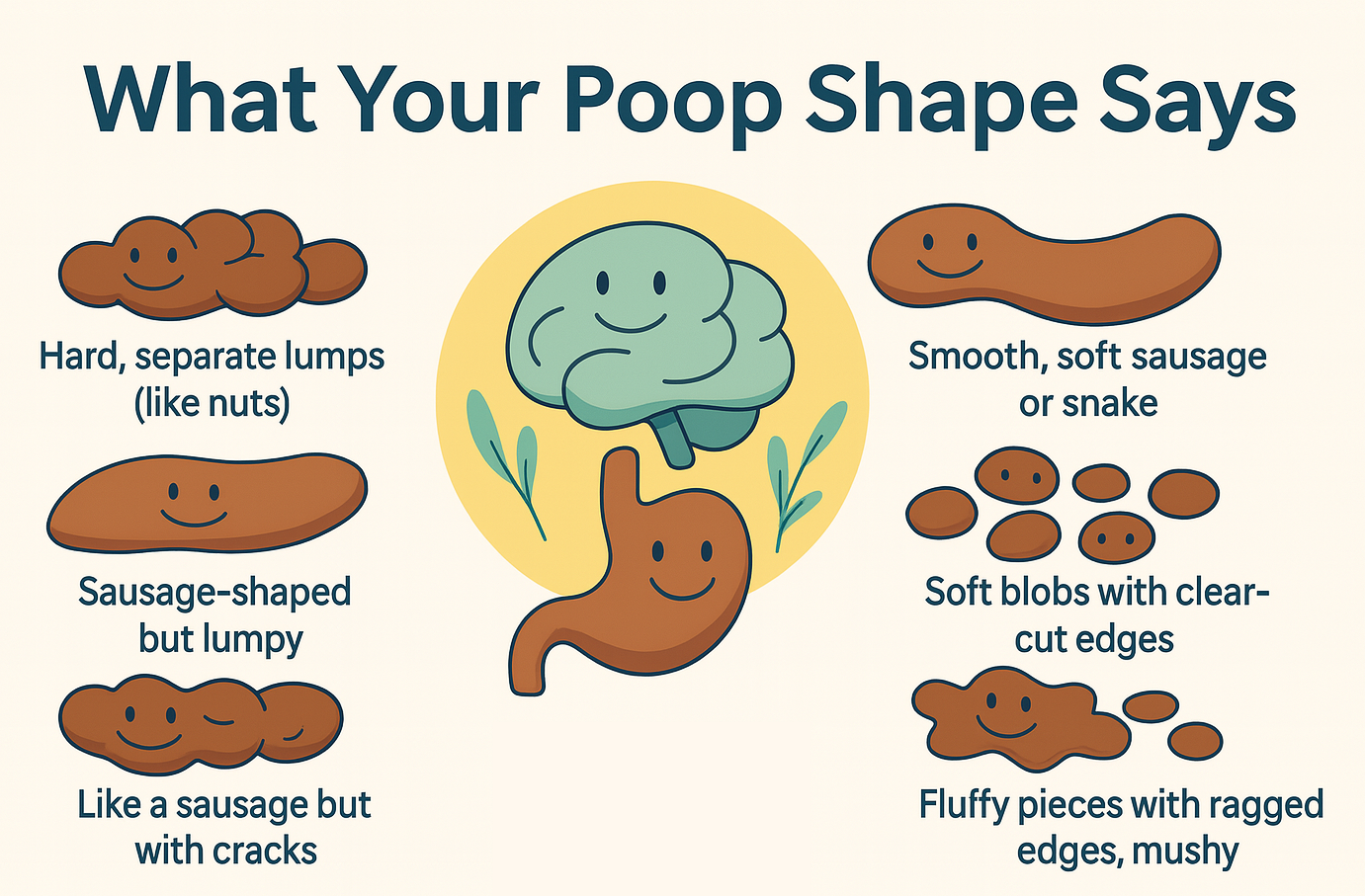Look, everyone poops. But not everyone talks about it.
We do.
Because that thing you’re flushing is your gut’s performance review — and it’s time to learn how to read it.
🚽 Enter: The Bristol Stool Chart
Yes, it’s a real thing.
Yes, doctors use it.
No, it’s not just to make you laugh uncomfortably.
| Type | What It Looks Like | What It Means |
|---|---|---|
| Type 1 | Hard, separate lumps (like nuts) | Severe constipation, gut is parched |
| Type 2 | Sausage-shaped but lumpy | Mild constipation, dehydrated |
| Type 3 | Like a sausage with cracks | Pretty normal |
| Type 4 | Smooth, soft sausage or snake | 🏆 Gold standard poop |
| Type 5 | Soft blobs with clear edges | On the loose side, maybe low fiber |
| Type 6 | Fluffy, mushy, ragged edges | Mild diarrhea, possibly stress/diet |
| Type 7 | Watery, no solid pieces | Your gut is angry. Very angry. |
🧠 What Your Stool Might Be Telling You
- Constipation (Types 1–2)
You’re dehydrated, low on fiber, or living off caffeine and stress. - Healthy (Type 3–4)
Congrats. Your gut likes you. Keep doing what you’re doing. - Too Loose (Type 5–6)
Could be your diet, stress, a new supplement, or just nerves. - Full Liquid Disaster (Type 7)
Food poisoning? Gut infection? Emotional breakdown in burrito form? Time to slow down and hydrate.
💡 Gut Tips to Improve Your Poop Game
- Hydrate: Aim for 1.5–2L water per day
- Fiber: 25–30g daily (from actual food, not cardboard cereal bars)
- Magnesium citrate: Natural laxative, but don’t overdo it
- Probiotics: Help rebalance if you’re swinging between extremes
- Chill the hell out: Stress = gut shutdown
🧻 Final Flush
Your poop isn’t just waste — it’s data.
Learn to read it, and you can tweak your diet, mood, and even sleep.
Want a free printable “Poop Decoder” PDF for your bathroom? Just sign up below – we’ll keep it classy-ish.

Alex Keane is a health writer and gut health researcher with a personal mission: help people stop feeling like garbage for no clear reason. After years of dealing with brain fog, digestive issues, and 3am anxiety spirals, Alex started digging into the connection between the gut and the mind — and never looked back.
When not writing about microbiomes, Alex is usually found experimenting with fermented foods, walking obsessively, or trying not to buy more supplements off Instagram.
Alex is not a doctor, and that’s probably for the best.

